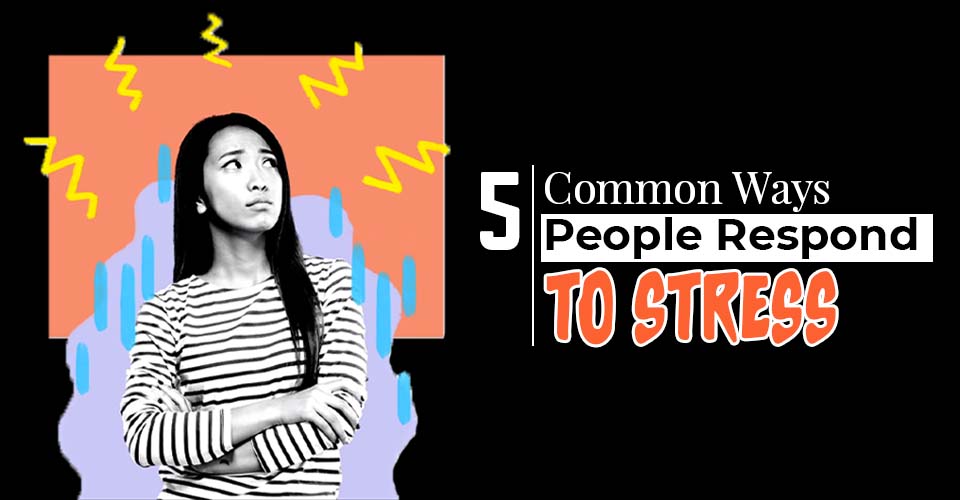Stress is more complex than fight or flight. Stress is a popular topic these days, but the fact that you can respond to stress in a variety of ways is often less reported. Understanding your stress response style is important.
Because the way you react to everyday stressors has been shown to have long-term implications for your physical and mental health.
How you deal with an annoying colleague, traffic, long lines in the store, and a later-than-you-wanted pick up of your child at daycare may not matter much to your mental health in the moment, but consistent stress sensitivity and lack of stress resilience have been shown to predict future mental-health outcomes – as much as 10 years after the fact.
Here are five common ways people respond to stress:**
Find out what is your stress response style.
1. Freeze Response:
You may become paralyzed, overwhelmed or feel hyper-vigilant in response to stress.
Read How Stressed Are You? Find Out With This Quiz
2. Fight Response:
You feel a sense of competitiveness, aggression, or self-defense. Your body is readying itself to “fight” within the context of the situation.
3. Flight Response:
Often reported in connection with “fight,” with this stress response you seek to escape, avoid, or withdraw.
Read When Does Each Zodiac Sign Gets Stressed Out: Know Your Trigger
4. Challenge Response:
How you think about stress matters enormously in terms of how you process it. Some people view stress as a threat, while others are able to view it as a challenge.
With a challenge response, you get additional energy, your heart rate rises, and your adrenaline goes up, but it differs in a few important ways from fight or flight:
a. you feel focused instead of fearful;
b. you release a different ratio of stress hormones, and
c. you are more easily able to access your mental and physical resources.
The result is enhanced concentration, peak performance, and more confidence.
Read How Each Myers-Briggs® Type Reacts to Stress (and How to Help!)
In fact, people who are able to think about stress more like a challenge and less like a threat report less depression and anxiety, higher levels of energy, work performance, and life satisfaction. These questions can help you harness a challenge stress response style:
a. Where do I have control/influence/leverage in the situation?
b. What is a specific action step I can take?
c. What are my strengths?
d. What resources do I have?
e. What allows me to know that I can handle this?
5. Tend-And-Befriend Response:
This type of stress response increases courage, motivates caregiving, and strengthens social relationships. It can be tempting to think, “I can handle this all by myself” in a stressful situation, but in reality, your stress response is actually pushing you to seek out help and become more prosocial.
I’ll never forget the interaction I had with a colleague before our respective speaking engagements a few years ago. She rushed over to me and said, “I’m so nervous.” I said that I was too, and we had an interesting conversation about the various strategies we use to calm our nerves before any big “performance.”
Read 7 Stress Personality Types: Is Your Personality Stressing You Out?
That little act of vulnerability on her part left us both feeling better and more confident. I’m a big fan of the tend-and-befriend response style because being able to reach out to close friends, colleagues, and family members is central to resilience, flourishing, well-being, happiness, and just about every other positive metric of human functioning.
While the tend-and-befriend stress response style was initially thought to characterize female stress response styles, research has shown that men exhibit this response style as well.

In one such study, the researchers hypothesized that a group of stressed-out men would be more likely to exhibit a fight-or-flight response to stress, but found the opposite to be true.
They discovered that the men who had just gone through a stressful experience were more likely to extend trust to a stranger and were more likely to be perceived as trustworthy generally – stress had made this group of men more prosocial.
Try out this reflection exercise: Review the list of stress response styles and circle the one or ones that match your typical response to stress and challenge.
Read 10 Secret Areas Where You Store Stress In Your Body
What role models, life experiences, and relationships have influenced your stress response style?
What do you like about how you respond to stress?
What could be improved? Is there a different way of responding to work or life challenges that would be more beneficial or productive for you?
Just knowing that there are a variety of ways to respond to stress was enormously helpful for me in terms of thinking about my own stress response style. Being able to view adversities as challenges (rather than threats) and knowing that your stress response is meant to help you connect with others can really make a difference in how you process stress moving forward.
Please share this article with anyone who you may think will find it valuable and helpful.
**Except as otherwise noted, the information in this article comes from Dr. Kelly McGonigal’s book The Upside of Stress and her online course of the same name at Stanford University.
Written by: Paula Davis Originally appeared on: Psychology Today Republished with permission.











Leave a Reply